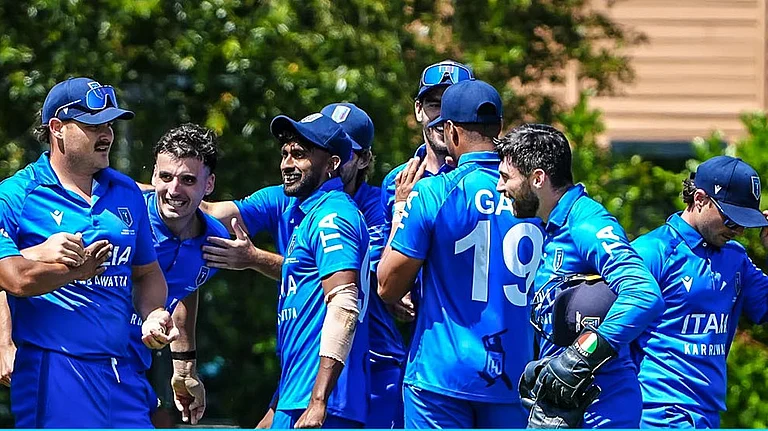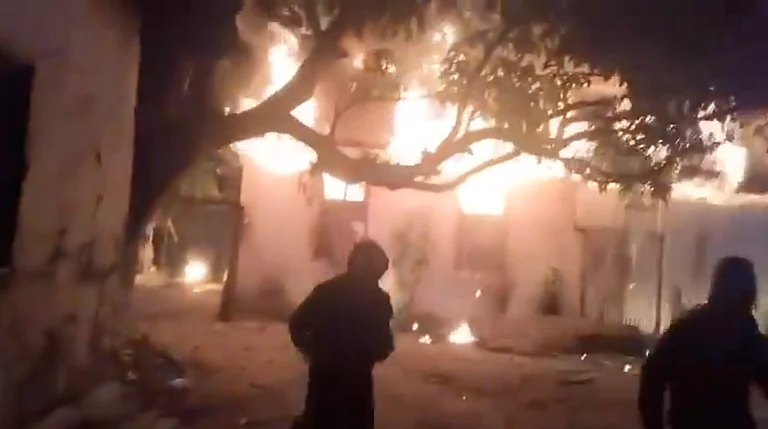No decision has been announced by the White House and according to a source from Washington, US ambassador Richard Celestes comments to Star News that the President was coming in the spring of 2000, only got the ambassador into trouble.
A visit to India and Bangladesh but not Pakistan would indicate a new tilt in the US foreign policy in the region, says Dr E. Sridharan, academic director of The Institute for the Advanced Study of India, affiliated to the University of Pennsylvania. "Even on Kargil, when Sharif asked the US to intervene, there was no real shift in policy on Pakistan, no move to support India. The US role was limited to a suggestion for respecting the Line of Control," he adds. But to visit Pakistan in its present avatar of being ruled by the army would violate the US requirement of a return to democracy. Avers Sridharan: "What will he get out of such a visit (that excludes Pakistan)? And it mystifies me that even after the CTBT was killed at the Senate there is still an effort at consensus on it. But India will not unilaterally sign and bind itself. It needs similar responses from Pakistan and China." Though the India expert says that trade and investment deals dont need a presidential visit, some believe it does help.
Clinton is expected to lobby for Boeing-which is facing stiff competition from the European consortium Airbus Industrie-to sell planes to India. This deal, if it works out, will cost India five to six billion dollars just in the first year, say aviation industry sources. Offers have already been made by the two companies. However, according to a source, the bureaucratic wranglings in India could hold up the buying process, which in other countries is usually speeded up with the President lobbying for it. "We have done the business by ourselves so far, and anyway there is no certainty to the visit so I would not like to speculate about what the US President might or might not do if he comes to India," says Boeing president in India Dinesh Keskar, unwilling to see the proposed visit as a fait accompli.
Indian Airlines needs to immediately replace a fleet of 18 Boeing 737s and six Airbus 310s, while Air India urgently needs to replace eight 747s and six Airbus 310s, says an aviation industry source. This is long overdue. The old planes need to be eased out.
In an earlier statement Randy Baseler, Boeing Commercial Airplanes Group vice-president marketing, said that Indian carriers are expected to add 376 airplanes worth $23 billion between 1999 and 2018. Even so, there is a serious doubt as to whether India has the money to pay for even the first part of such a purchase.
All that apart, Clinton can also be a useful husband. Wife Hillarys decision to run for the Senate from New York could well impart a greater sense of purpose to the visit-gain support from the immigrant Indo-Bangladesh lobby there. Says foreign affairs expert Kanti Bajpai: "There is some suggestion of Hillary needing the NRI vote as she is shown to be trailing in the polls. "
But it is unlikely that Clinton would like to go down in history as the president who was driven by a personal agenda to make a big state visit to the nuclearised subcontinent, a region which could have helped him prove his mettle by bringing results to the strong and broadbased non-proliferation lobby back home. Says Sridharan: "If he comes back without something substantial, he will be under very strong attack...and any hint of a personal reason for the trip would only worsen things for him."
However, JNU foreign affairs expert Pushpesh Pant believes that Indians would do well to cash in on the first presidential visit after about two decades. "It is a good opportunity for India to raise awareness of this country in the US media-even if it just means 10 more seconds on TV." He adds with some cynicism: "As a lame duck president...the visit will be of no substance. It will not even be symbolic enough." For the new Indian government will eventually have to deal with the new US president, not the outgoing one.
On its part, New Delhi is getting contradictory signals from Washington. On the one hand, no dates have been set but on the other, Washington has indicated that the visit is not conditional to India signing the CTBT.
Bajpai believes that New Delhi has perhaps overinterpreted some of the White House statements. Says he: "They genuinely dont have a date. They are using the time to figure out how they are going to fulfil their commitment to visit India, diplomatically, and what they are trying to achieve by it." He believes that Clinton will be able only to sign some technical deals on non-dual use areas on the nuclear front, an agreement on energy cooperation, information technology, perhaps some agreement on terrorism and an easing up on the Entities list.
Avers former foreign secretary J.N. Dixit: "He wants to see if India and Pakistan can be persuaded to become part of the non-proliferation agenda and even if he does not succeed he can say that he made a beginning."
So, rather than it being a grand peace-making mission, Clinton may perhaps be happy with more modest gains during his expected but unconfirmed visit. And he would correct the situation of having all but ignored the region during his tenure.

























